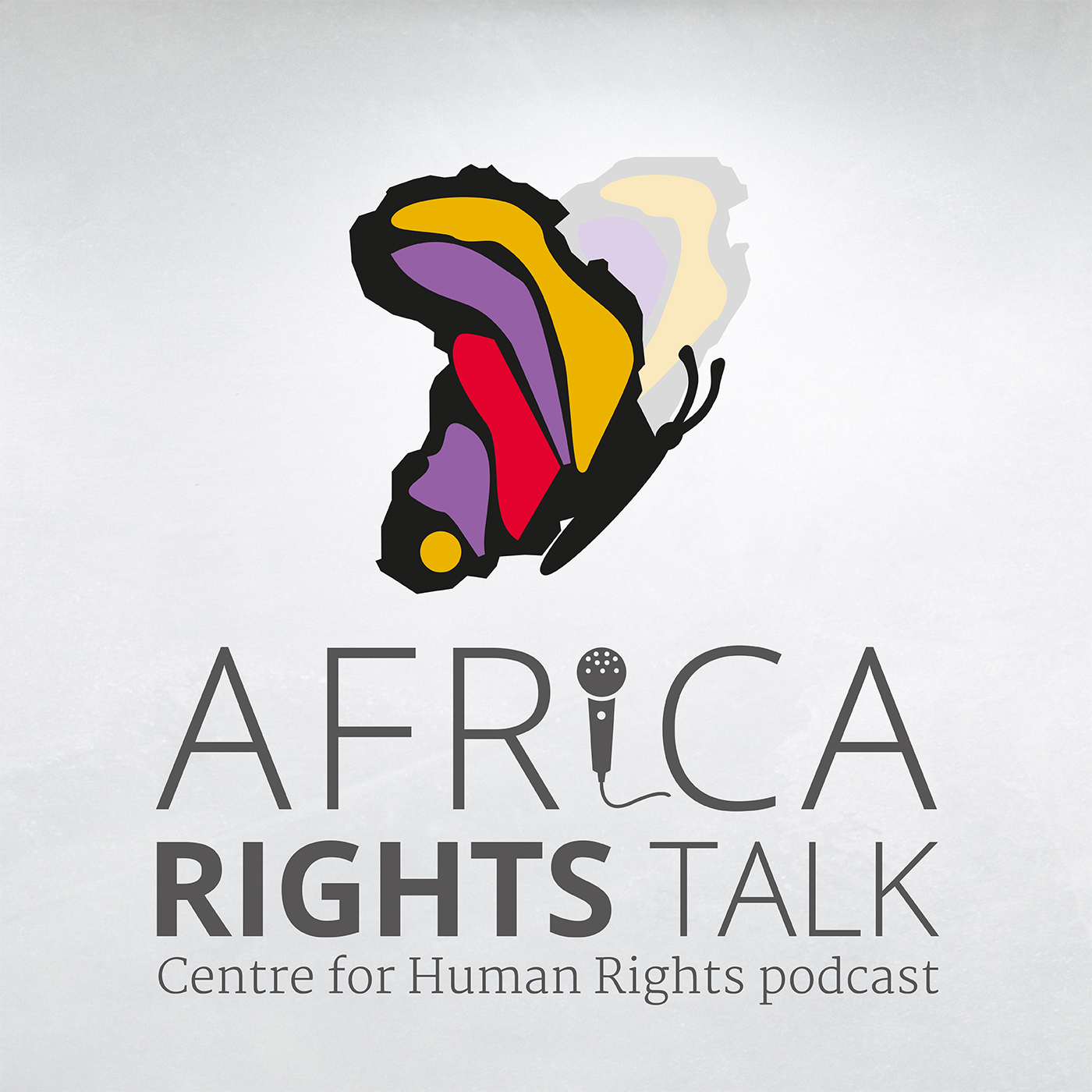Episodes
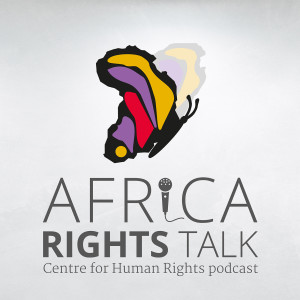
Thursday Oct 01, 2020
S2 E15: Poverty and human Rights In Africa
Thursday Oct 01, 2020
Thursday Oct 01, 2020
Season 2 Episode 15: Poverty and human rights in Africa
In conversation with Ebenezer Durojaye and Gladys Mirugi-Mukundi
In this week’s episode, we meet the editors of the book Exploring the link between poverty and human rights in Africa. This book was published by the Pretoria University Law Press (PULP) and launched virtually on 6 August 2020.
Professor Ebenezer Durojaye and Ms Gladys Mirugi-Mukundi discuss the topical issues covered in the book and the effect of poverty on human rights. Exploring the link between poverty and human rights in Africa is a book which addresses poverty, one of the important issues confronting Africa, from a multi-disciplinary approach. With contributions from eminent scholars from diverse backgrounds, the book explores poverty from a human rights perspective. Its central message is that poverty is not necessarily a failure on the part of an individual, but rather caused by the actions or inactions of governments, which are often exacerbated by structural inequalities in many African societies. This in turn requires a more pragmatic approach grounded in respect for human rights. This book is a useful book for researchers, policymakers, students, activists and others interested in addressing poverty.
Professor Ebenezer Durojaye is a Professor of Law and head of the Socio-Economic Rights Project at the Dullah Omar Institute, University of the Western Cape, South Africa. His areas of research include human rights, socio-economic rights, sexual and reproductive health and rights, gender and constitutionalism. From 2012 to 2014 he provided technical support to the UN Special Rapporteur on extreme poverty and human rights. During this period, he participated in the drafting of the UN Guiding Principles on Extreme Poverty and Human Rights adopted by the Human Rights Council in 2012.
Gladys Mirugi-Mukundi is a researcher at the Dullah Omar Institute, a think tank engaged in law and policy research, teaching and advocacy on governance and human rights in Africa, based at the University of the Western Cape. Her research expertise and interest are in human rights, socio-economic rights, social justice and inclusive societies, women and access to housing, rule of law and corruption. She is the co-editor the Economic & Social Rights Review in Africa (ESR Review) , a quarterly publication that aims to inform and educate policymakers, members of civil society, the academic community and legal practitioners about key developments relating to socio- economic rights at the national and international levels.
This book is available for free and can be downloaded from the Pretoria University Law Press (PULP) website.
This conversation was recorded on 14 August 2020
Music: Inner Peace by Mike Chino https://soundcloud.com/mike-chinoCreative Commons — Attribution-ShareAlike 3.0 Unported — CC BY-SA 3.0 http://creativecommons.org/licenses/b...Music promoted by Audio Library https://youtu.be/0nI6qJeqFcc
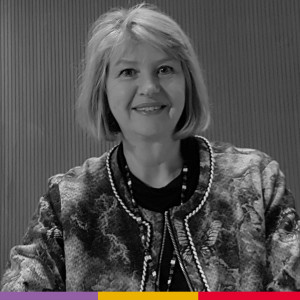
Tuesday Sep 15, 2020
Tuesday Sep 15, 2020
In conversation with Professor Ann Skelton
In this week’s episode, Professor Ann Skelton walks us through her journey and work in children’s rights. She discusses the positive implications of the Committee on the Rights of the Child to host the first ever United Nations treaty body session outside of Geneva in March 2020 in Samoa. She goes on to discuss the impact of COVID-19 and how it affects state reporting at the United Nations level and how it affects the observation and promotion of the rights of the child. Professor Ann Skelton encourages women to take opportunities when they come, as they come and to work hard at those opportunities. Her advice to aspiring career women, is that they should ensure that they do what they are passionate about, and if they are not sure what that is, to expose themselves to the field of work until something starts pressing their buttons which should motivate them to want to make a difference.
Professor Ann Skelton is a professor of law at the University of Pretoria, where she holds the UNESCO Chair in Education Law in Africa. She is also the former director of the Centre for Child Law which promotes children’s rights in South Africa through advocacy, law reform, research and litigation. She is a practicing lawyer who often appears in South African courts, arguing landmark children’s rights cases. Professor Ann Skelton is a member of the Committee on the Rights of the Child.
This conversation was recorded on 20 August 2020.
Music: Inner Peace by Mike Chino https://soundcloud.com/mike-chinoCreative Commons — Attribution-ShareAlike 3.0 Unported — CC BY-SA 3.0 http://creativecommons.org/licenses/b...Music promoted by Audio Library https://youtu.be/0nI6qJeqFcc
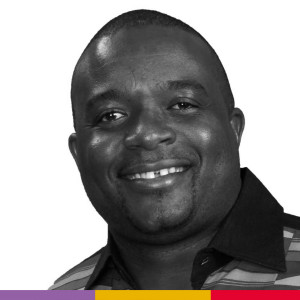
Tuesday Sep 01, 2020
S2 E13: An analysis of the deteriorating human rights situation in Zimbabwe
Tuesday Sep 01, 2020
Tuesday Sep 01, 2020
In conversation with Mr Brian Kagoro
The continuing systemic human rights violations in Zimbabwe have brought the country under spotlight for the wrong reasons. There seems to be a continual shrinking space for democratic participation in the country. In July 2020, award winning journalist Hopewell Chin’ono was detained and arrested on charges of inciting public violence after exposing alleged government corruption involving COVID-19 funds. This is a common phenomenon that continues to find space as many political opposition activists have been detained, abducted and arrested at the hands of a government that misuses the criminal justice system to intimidate and persecute journalists and activists.
In this episode, Mr Brian Kagoro, a Zimbabwean lawyer, gives a historical background of how the legacy of colonial violations have continued to soar post-independence under the Mugabe and Mnangagwa regime. He discusses the nexus between political instability and the alleged human rights violations in Zimbabwe and how this is mirrored in other African countries. Furthermore, this episode gives an insight of how human rights mechanisms at regional and international level can provide remedies to address human rights violations in Zimbabwe. This information- packed episode also talks about how the results of quiet diplomacy perpetuate the suffering of the common Zimbabwean folk.
Mr Brian Kagoro is a Zimbabwean citizen, Pan-Africanist and a constitutional and economic relations lawyer. He played an instrumental role in the formation of Crisis in Zimbabwe Coalition and has served as a consultant for regional organisations such as the African Union Commission, the New Partnership for Africa's Development (NEPAD) and the United Nations Economic Commission for Africa. Mr Brian Kagoro has also served on boards in the private sector as well as civil society groups, including but not limited to Zimbabwe Lawyers for Human Rights and Amani Trust. As a writer, he has published several articles on civil society participation as well as the unstable political situation in Zimbabwe.
This conversation was recorded on 26 August 2020.
Music: Inner Peace by Mike Chino https://soundcloud.com/mike-chinoCreative Commons — Attribution-ShareAlike 3.0 Unported — CC BY-SA 3.0 http://creativecommons.org/licenses/b...Music promoted by Audio Library https://youtu.be/0nI6qJeqFcc
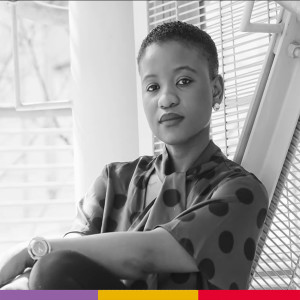
Tuesday Aug 18, 2020
S2 E12: The impact of COVID-19 on elections in Africa
Tuesday Aug 18, 2020
Tuesday Aug 18, 2020
In conversation with Ms Bonolo Makgale
“Elections are not just a mechanical process, they are a complicated constitutional issue that goes to the heart of politics”.
Elections are vital in promoting democratic governance and fostering civic engagement in any society. The failure to conduct peaceful and fair elections, or the absence of elections, largely feeds into the prevalence of dictatorships in Africa. More often than not, these dictatorships are characterised by socio-political and economic instability which has direct negative impacts on the realisation of human rights. This episode discusses the impact of COVID-19 on the political landscape in Africa, and more specifically, its impact on elections.
Ms Bonolo Makgale is the Manager for the Democracy and Civic Engagement Unit at the Centre for Human Rights, University of Pretoria. She has authored an article originally published by AfricLaw titled, ‘The scourge of homelessness and evictions during the COVID-19 pandemic in the City of Johannesburg’. The Democracy and Civic Engagement Unit encourages and facilitates civil society engagement with the Pan African Parliament’s mandate, processes and activities. It also endeavours to promote the ratification of the African Charter on Democracy, Elections and Governance, to support institutions that defend democracy in Africa and to tackle xenophobia in South Africa.
This conversation was recorded on 12 August 2020.
Music: Inner Peace by Mike Chino https://soundcloud.com/mike-chinoCreative Commons — Attribution-ShareAlike 3.0 Unported — CC BY-SA 3.0 http://creativecommons.org/licenses/b...Music promoted by Audio Library https://youtu.be/0nI6qJeqFcc

Tuesday Aug 04, 2020
S2 E11: Understanding Indigenous People’s rights from a global perspective
Tuesday Aug 04, 2020
Tuesday Aug 04, 2020
In conversation with Professor Cyndy Baskin
The episode lays a foundation to understand who indigenous peoples are and the challenges they face from a global perspective. Professor Cyndy Baskin explains the similarities and differences of the plight of indigenous peoples from developing and developed nations. She discusses the contested issues of self-determination and self-governance for indigenous peoples and explains the impact of climate change on indigenous peoples. This episode was recorded in light of the Advanced Human Rights Course on Indigenous Peoples Rights presented by the Centre for Human Rights in 2019. To get a more detailed understanding of indigenous peoples in Africa, the Centre for Human Rights in collaboration with the International Work Group for Indigenous Affairs (IWGIA) and the Working Group on Indigenous Populations/Communities in Africa of the African Commission on Human and Peoples’ Rights will host an online one-week intensive short course on indigenous peoples’ rights from 31 August to 4 September 2020.
Professor Cyndy Baskin is an associate professor in the School of Social Work at Ryerson University. She is of Mi’kmaq and Celtic descent. Her teaching mainly focuses on bringing indigenous worldviews into social work education for both indigenous and non-indigenous scholars. She is the academic coordinator of Ryerson University’s Chang School of Continuing Education Certificate in Indigenous Knowledges and Experiences in Canada and serves as the Chair of Ryerson University’s Aboriginal Education Council. She is also a member of various boards and committees of Aboriginal agencies across Toronto. She has done considerable research around the welfare of indigenous peoples, including the rights of indigenous women and those with disabilities. Professor Baskin also has several publications to her name including books, articles and research reports.
This conversation was recorded on 26 September 2019.
Music: Inner Peace by Mike Chino https://soundcloud.com/mike-chinoCreative Commons — Attribution-ShareAlike 3.0 Unported — CC BY-SA 3.0 http://creativecommons.org/licenses/b...Music promoted by Audio Library https://youtu.be/0nI6qJeqFcc
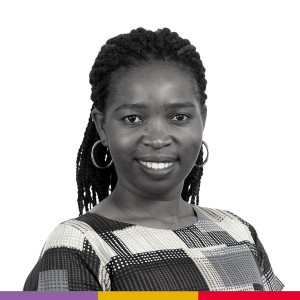
Tuesday Jul 21, 2020
S2 E10: #Tech4Rights: The importance of technology and human Rights
Tuesday Jul 21, 2020
Tuesday Jul 21, 2020
In conversation with Ms Hlengiwe Dube
The Centre for Human Rights campaign for 2020 is #Tech4Rights: Rethinking a human rights-based approach to new technologies in Africa. The year- long theme focuses on the impact of new technologies on different aspects of human rights. In this episode, Ms Hlengiwe Dube, unit manager for The Expression, Information and Digital Rights Unit discusses the importance of technology on human rights.
The Expression, Information and Digital Rights Unit supports the mandate of the Special Rapporteur on Freedom of Expression and Access to Information in Africa of the African Commission on Human and Peoples’ Rights in the promotion and protection of Freedom of Expression and Access to information on the continent, as guaranteed by Article 9 of the African Charter on Human and Peoples’ Rights and further elaborated by the Declaration of Principles on Freedom of Expression in Africa
This conversation was recorded on 20 July 2020.
Music: Inner Peace by Mike Chino https://soundcloud.com/mike-chinoCreative Commons — Attribution-ShareAlike 3.0 Unported — CC BY-SA 3.0 http://creativecommons.org/licenses/b...Music promoted by Audio Library https://youtu.be/0nI6qJeqFcc
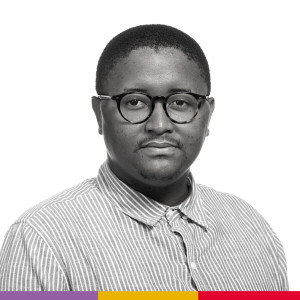
Tuesday Jul 07, 2020
S2 E9: Institutional racism and how it manifests in the African context
Tuesday Jul 07, 2020
Tuesday Jul 07, 2020
In conversation with Dr Joel Modiri
Dr Joel Modiri is a Senior Lecturer in the Department of Jurisprudence in the Faculty of Law at the University of Pretoria. He holds the degrees LLB cum laude and a PhD both from the University of Pretoria. His PhD thesis was titled ‘The Jurisprudence of Steve Biko: A Study in Race, Law and Power in the ‘Afterlife’ of Colonial-apartheid’. Dr Modiri mainly teaches in the field of Jurisprudence and Legal Philosophy. He has convened and taught a number of law subjects such as Social Justice and Human Rights, African Human Rights, Research Methodology, Legal Problems of HIV & AIDS, and Law and Transformation. He has also taught portions of courses in Philosophy, Political Science, Sociology and Public Policy presented by the Faculty of Humanities at the University of Pretoria. He currently convenes the LLM/MPhil in Law and Political Justice.
In light of the lives of black people that have been sacrificed senselessly at the hands of police brutality, Dr Joel Modiri discusses and explains what institutional racism is and how it manifests in the African context. He discusses the correlational link between institutional racism and police brutality. He reflects on the victimisation of black people at the hands of police and armed forces and other forms of racism. He assesses the impact of this on the South Africa’s democracy project. The discussion also analyses the effectiveness of legal responses to racism and provides strategies on what can be done to eliminate racism.
This conversation was recorded on 29 June 2020.
Music: Inner Peace by Mike Chino https://soundcloud.com/mike-chinoCreative Commons — Attribution-ShareAlike 3.0 Unported — CC BY-SA 3.0 http://creativecommons.org/licenses/b...Music promoted by Audio Library https://youtu.be/0nI6qJeqFcc
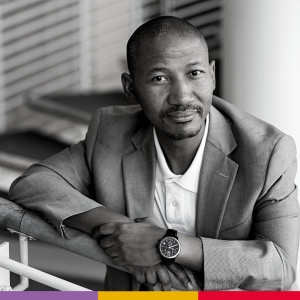
Tuesday Jun 23, 2020
Tuesday Jun 23, 2020
In conversation with Professor Dire Tladi
“…the immediate dangers we are facing right now are not legal dangers. The immediate dangers we are facing right now are health dangers...”
In this episode, Professor Dire Tladi explains how his journey and passion for international law has led him to becoming a member of the UN International Law Commission and its Special Rapporteur on Jus Cogens. In a most recent monumental achievement, he was elected to serve on the Institut de Droit International's (Institute for International Law) commission on pandemics and international law. In this conversation, he talks about pertinent issues on the role the Institut de Droit International plays in addressing the COVID- 19 pandemic through international law. He explains how there are deliberate efforts and progress made in international law to address the challenges that are existing in international law to deal with COVID- 19 and how these efforts can help address future pandemics and epidemics. The conversation takes an interesting twist and talks about how COVID-19 presents a platform for solidarity for fellow human beings, regardless of background. It also provides some insight on how the pandemic presents an opportunity for African states to be self-sufficient.
He is a professor of international law at the Department of Public Law at the University of Pretoria. He is a member of the UN International Law Commission and its Special Rapporteur on Jus Cogens. He was recently appointed to serve on the Institut de Droit International's commission on pandemics and international law. He describes himself as a generalist in public international law, although at different times he has focused on specific areas such international criminal law, the law on the use of force and the law of the sea. He holds the degrees BLC LLB (cum laude) from the University of Pretoria, an LLM from the University of Connecticut, and a PhD from Erasmus University Rotterdam. The title of his PhD thesis was Towards a nuanced conceptualisation of sustainable development in International Law: An analysis of key enviro-economic instruments. He has previously served as adviser to the Minister of International Relations and Cooperation.
This conversation was recorded on 12 June 2020.
Music: Inner Peace by Mike Chino https://soundcloud.com/mike-chinoCreative Commons — Attribution-ShareAlike 3.0 Unported — CC BY-SA 3.0 http://creativecommons.org/licenses/b...Music promoted by Audio Library https://youtu.be/0nI6qJeqFcc
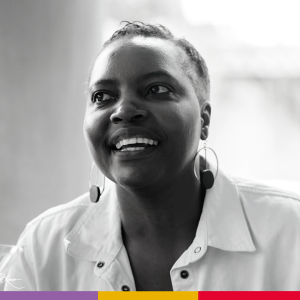
Tuesday Jun 09, 2020
S2 E7: Covid-19 and the impacts of concomitant government regulations on women
Tuesday Jun 09, 2020
Tuesday Jun 09, 2020
In conversation with Ms Patience Mungwari
“The pandemic has travelled along the fault lines of social injustice to really expose some of the weaknesses in our governance systems”.
This conversation discusses the impact of Covid-19 and concomitant government regulations on skyrocketing cases of gender-based violence. Ms Patience Mungwari talks about the challenges women from different walks of life such as migrant and rural women face, as a result of government regulations in an effort to curb the spread of Covid-19. This episode discusses the conflicting nature of government policies and their implementation following lockdowns. In this discussion, she also highlights weaknesses in the system and provides solutions to address the plight of women. She calls for a gendered analysis in implementing policies as well as for inclusive participation from all stakeholders to reduce the effects of the pandemic on women during and post lock down.
Ms Patience Mungwari is a Project Manager for the Women’s Right Unit at the Centre for Human Rights, University of Pretoria. She has expert knowledge of gender related issues and women’s rights in particular. She also has considerable experience in advocacy, training and facilitation to promote the implementation and popularisation of the Protocol to the African Charter on Human and Peoples’ Rights on the Rights of Women in Africa (Maputo Protocol) through research, training and advocacy.
Report abuse if you are experiencing gender- based violence or you if know of someone who is. Please contact the Gender-Based Violence Command Centre help line for immediate assistance.
This conversation was recorded on 27 May 2020.
Music: Inner Peace by Mike Chino https://soundcloud.com/mike-chinoCreative Commons — Attribution-ShareAlike 3.0 Unported — CC BY-SA 3.0 http://creativecommons.org/licenses/b...Music promoted by Audio Library https://youtu.be/0nI6qJeqFcc
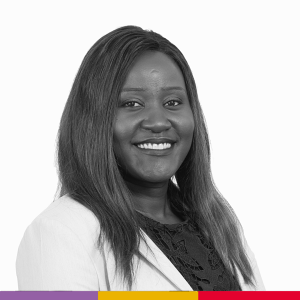
Tuesday May 26, 2020
S2 E6: The right to access to justice for persons with disabilities
Tuesday May 26, 2020
Tuesday May 26, 2020
In conversation with Ms Dianah Msipa
This episode addresses the right to access to justice for persons with disabilities and the gap in knowledge that exists in the justice system on how to assist persons with disabilities on an equal basis in comparison with others. Ms Dianah Msipa talks about the challenges persons with disabilities face in accessing justice and in light of the COVID-19 pandemic. These challenges include but are not limited to attitudinal barriers and access to the environment and information. At the end of the discussion Ms Msipa provides recommendations on what can be done to improve the plight of persons with disabilities in accessing justice.
Dianah Msipa is a lawyer by profession and she is currently the Programme Officer for the Disability Rights Unit at the Centre for Human Rights, University of Pretoria. The Disability Rights Unit aims to address the rights of persons with disabilities on the African continent by conducting research on international disability rights standards and instruments, building capacity among governments, national human rights institutions, academia, civil society and communities, and engaging with judicial, quasi-judicial and non-judicial redress mechanisms.
Ms Msipa’s expertise lies in the areas of disability rights, access to justice for persons with disabilities, legal capacity training and she teaches on African disability rights protection.
This conversation was recorded on 22 May 2020.
Music: Inner Peace by Mike Chino https://soundcloud.com/mike-chinoCreative Commons — Attribution-ShareAlike 3.0 Unported — CC BY-SA 3.0 http://creativecommons.org/licenses/b...Music promoted by Audio Library https://youtu.be/0nI6qJeqFcc

